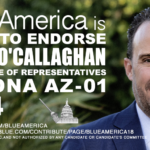
Despite what you might be reading about signs of hope, there's no rational basis for believing the unemployment crisis is ending anytime soon. I understand that they're trying to find something positive to say, but many of us prefer to know the truth - like this:
For those receiving unemployment benefits, long-term joblessness has tested the limits of the system. In April, 47.1 percent of all people collecting state unemployment insurance exhausted the usual maximum of 26 weeks of benefits without finding work, according to the Bureau of Labor Statistics. That is the highest rate on record, going back to 1972, when the Labor Department began keeping track.
The $787 billion stimulus package that Congress passed in February contained $27.1 billion to help states extend unemployment benefits. As of mid-May, 2.5 million people were collecting extended benefits. The time limit has been increased to 59 to 79 weeks.
Workers who exhaust their benefits and don't get new training tend to become disconnected from the labor force, said Harvard University economist Lawrence Katz. "A lot of them have ended up on disability rolls," he said. "They're basically never coming back into the workforce."
Extending unemployment benefits and making it easier for the jobless to be retrained could help workers avoid some of the most negative consequences of job loss. But under state regulations, the unemployed often have to give up benefits if they return to school. President Obama earlier this month said he will try to persuade states to allow unemployed workers to keep their benefits as they seek a broader range of schooling.
Until then, Mark Beaupre, 49, of Providence, R.I., is wondering whether he and his family will be able to rejoin the middle class. He lost his $8-an-hour job at a ringmaking factory more than a year ago. It was the last in a string of manufacturing jobs he's held since the 1980s. His wife, Cathy, was let go from her customer service job a year ago. The couple used to earn about $50,000 a year. Now they have fallen behind on their mortgage and applied for food assistance.
"Three cars. College money. We went from that to poverty," Beaupre said. "I never thought I'd be in this sort of situation."
Beaupre has applied for scores of jobs, keeping him out of the pool of "marginally attached workers" who have given up looking and are no longer counted as unemployed by the government's primary measure of joblessness.
But the odds of finding a job have steadily gotten worse. In December 2007, there were about two unemployed workers for every opening, Labor Department data show. As of March, there were five for every opening. Beaupre found that out when he tried to go to a job fair in Providence two weeks ago. Three thousand people turned out.
"I couldn't even get into the parking lot," he said.
Recently, the sight of other middle-class refugees living in a tent city in town unnerved him, reminding him of how quickly his life has changed.
"We were doing okay," he said. "It's shocking. I don't know what to say. We are walking around in dazes."














